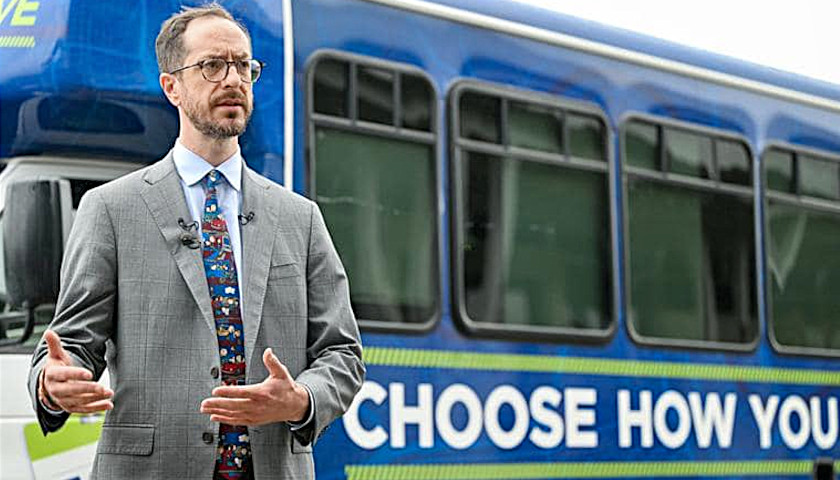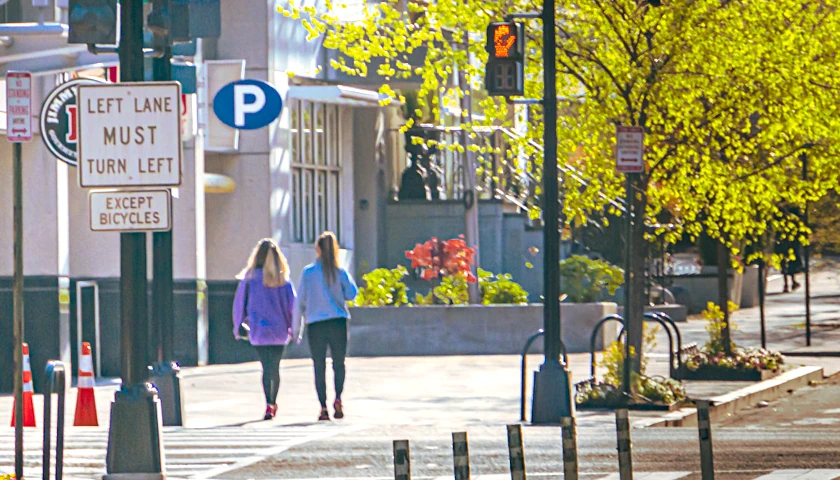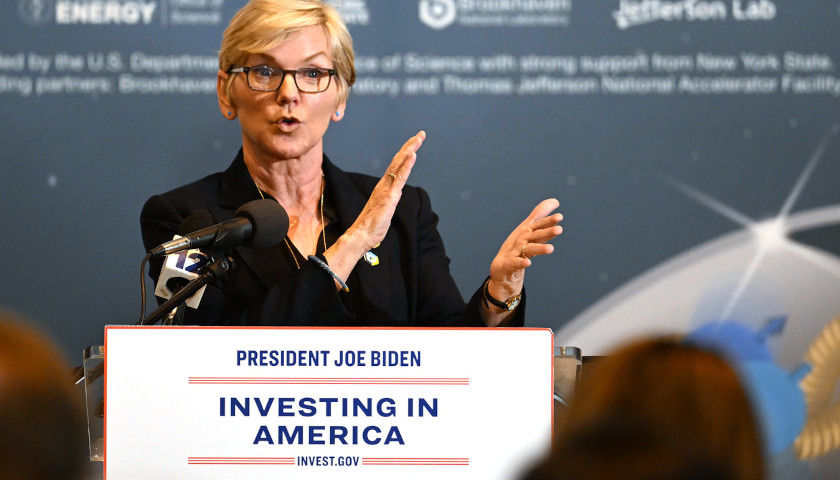Nashville’s Beacon Center, a politically conservative think tank, explained the “downright inexcusably awful” portions of Nashville Mayor Freddie O’Connell’s mass transportation plan Choose How You Move in an analysis published Friday.
Choose How You Move is a $3.1 billion mass transportation plan proposed by O’Connell that would upgrade nearly 600 traffic signals, build or upgrade 86 miles of sidewalks, provide 24/7 public transportation, and more features planned to be funded by a half-cent sales tax increase. The plan fell under criticism by political conservatives who have argued Choose How You Move is a misuse of tax dollars.
In an article analyzing what it considers the pros and cons of the mass transportation plan, Director of Policy and Research for the Beacon Center Ron Shultis noted a section of Choose How You Move he called “downright inexcusably awful:” real estate development led by Metro government.
The plan calls for dedicated funding to acquire property so “it could be developed with a variety of transit-connected community needs, such as thoughtfully designed affordable housing,” according to Choose How You Move. Private and non-profit companies would join Metro to develop these properties.
Additionally, Choose How You Move proposes purchasing property near the planned SoBro, East Bank, Antioch, West Nashville, Tennessee State University, Skyline, Madison, Donelson, Nolensville, and Bellevue Transit Centers.
“So now a government that not too long ago had problems delivering basic services like trash pickup is going to get into the real estate development business?” Shultis said. He linked to a 2022 report in The Tennessean that the Metro government was “struggling to repair and replace its own aging fleet of trash trucks” amid failure from the city’s trash truck contractor to complete its routes.
He also pointed out that according to Choose How You Move, “Metro general funds could be used to… keep these transit-oriented communities affordable and accessible to today’s Nashvillians.”
“What does that mean, you ask?” Shultis said. “It sounds like using your property taxes to help subsidize others’ rent or mortgage payments. I sure hope your current rent or mortgage is affordable because you’re about to take on part of someone else’s payment.”
Additionally, Shultis critiqued the “All Access Corridors” portion of Choose How You Move, which is the most expensive and expansive. According to Choose How You Move, the All Access Corridors would not be enclosed spaces but increased resources like added sidewalks, traffic signals, and “transit only lanes” for heavily traveled roads. This means some roads will only need some new striping while others will be fully reconstructed with new lanes, according to the plan.
According to Choose How You Move, bus rapid transit (BRT) is another element of All-Access Corridors.
“BRT is a level of bus service intended to mimic rail service with increased capacity and speed compared to traditional buses,” Shultis said. He noted that BRT usually includes dedicated bus lanes, priority for buses at intersections, raised platforms for passengers getting on and off buses, and prepaid fares so there is no wait time.
Shultis expressed concern that Metro could dedicate already-existing road lanes for bus use only, potentially increasing Nashville’s traffic congestion. He also said Nashville may not be dense enough to handle a BRT service.
– – –
Matthew Giffin is a reporter at The Tennessee Star and The Star News Network. Follow Matthew on X/Twitter.
Photo “Mayor Freddie O’Connell” by Mayor Freddie O’Connell.








